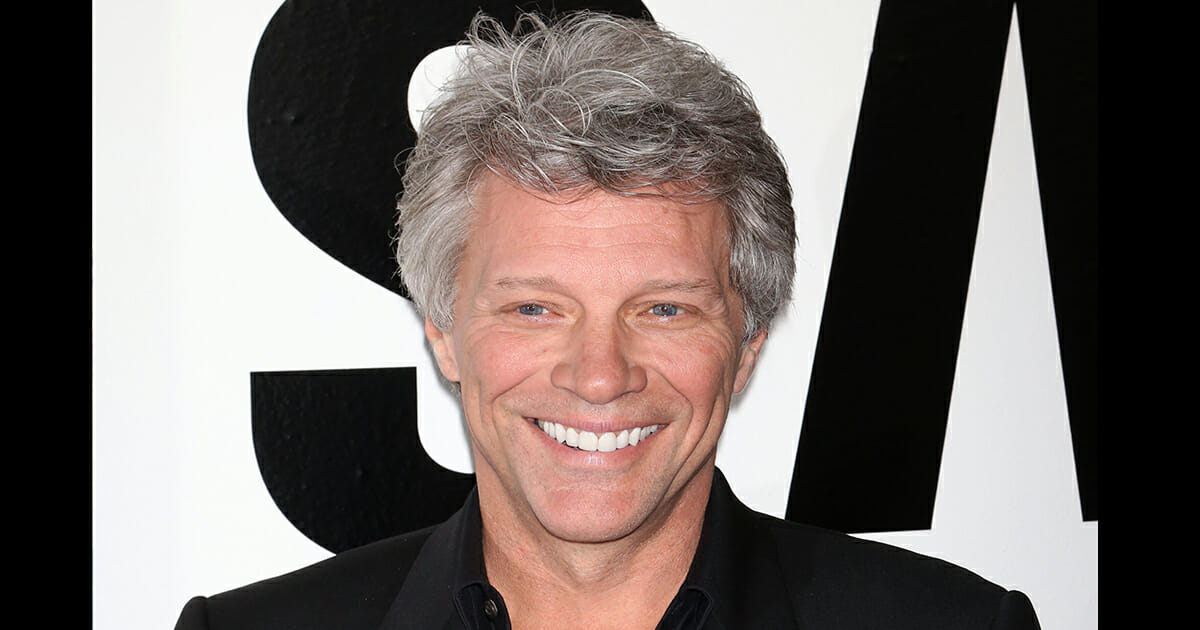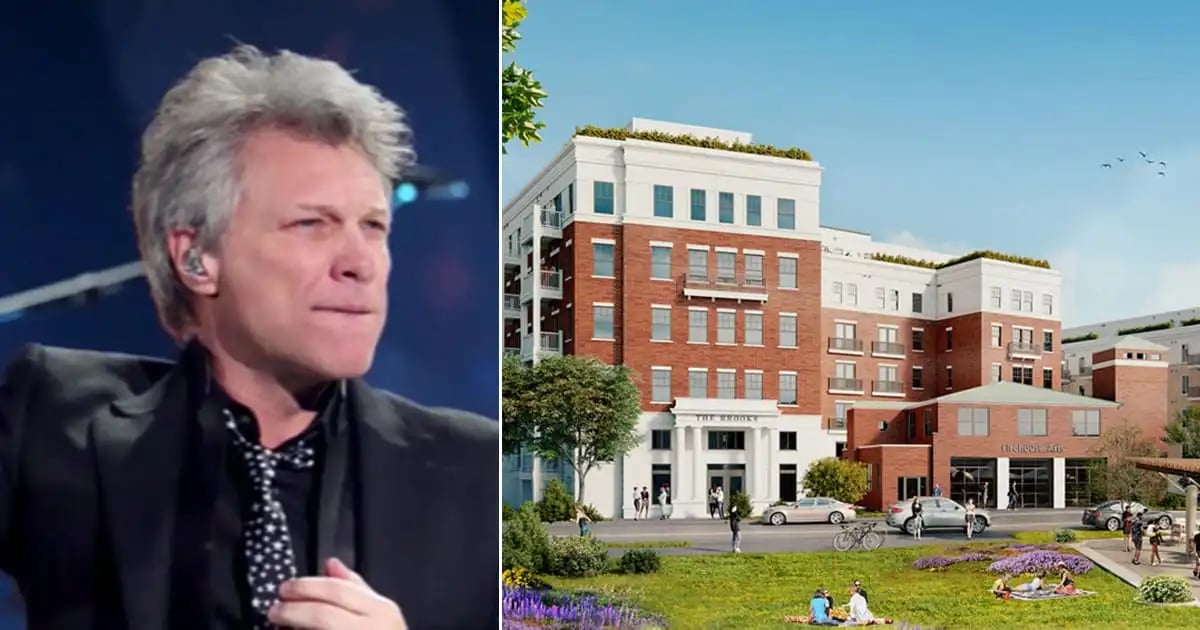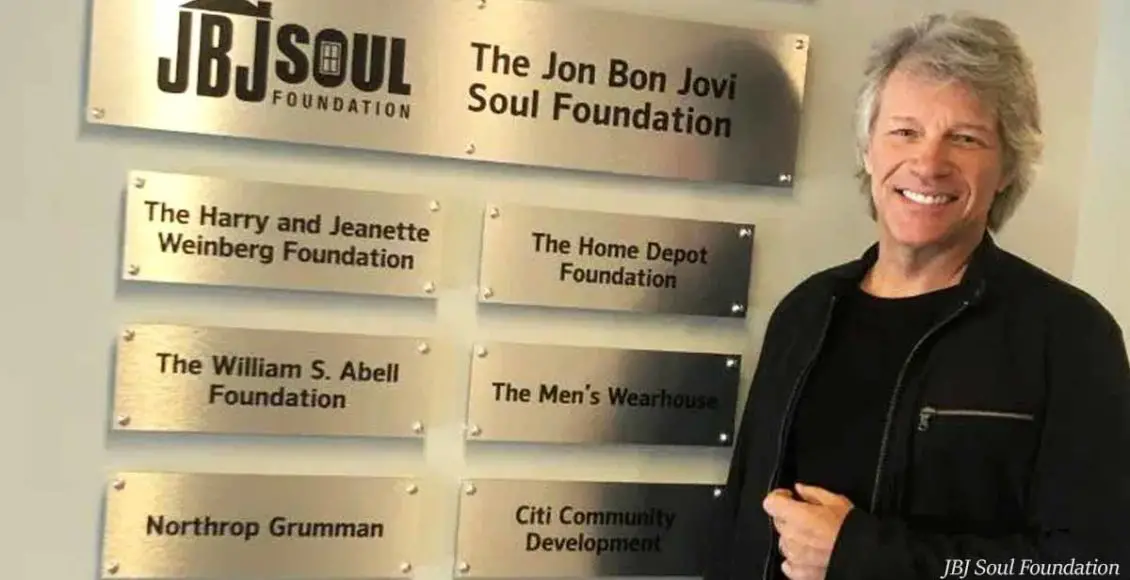Rock Legend Shocks the Nation with Monumental Gift to Shelter Homeless Veterans
BON JOVI’S $500K BOMBSHELL: Rock Legend Sends Shockwaves Across the Nation with Monumental Gift to House Homeless Veterans—Revealing Hidden Talks, Emotional Moments, and a Bold New Model of Celebrity Charity That Could Change the Landscape of Giving Forever. What Drove This Stunning Act of Compassion, and How Is It Already Transforming Lives Today?
In a surprising and deeply moving gesture, rock icon Jon Bon Jovi stepped away from the limelight to direct his attention to a crisis often ignored: homelessness among American veterans. Through his Jon Bon Jovi Soul Foundation, the singer committed an eye-popping $500,000 to build homes for those who once served the nation—an act that stunned fans and stirred widespread admiration for its sincerity and scale.

The donation was announced with little hype or media buildup, yet quickly took hold of public consciousness. As details emerged, it became clear that this was more than just a generous check—it was a direct response to the silent suffering of thousands of veterans struggling with housing insecurity. The country was captivated not just by the gesture, but by the humanity behind it.
Homelessness among veterans is a quiet crisis in America. Despite risking their lives in service, many veterans return home to find no support system, facing mental health issues, joblessness, and homelessness. Bon Jovi’s substantial pledge aims to change that narrative by creating permanent housing solutions that prioritize dignity, community, and recovery.
Those close to Bon Jovi revealed that his interest in this issue goes beyond charity—it’s personal. Moved by first-hand conversations with struggling veterans and frustrated by a lack of systemic solutions, he committed not just money but his voice. The rock star called out society’s indifference and urged both public and private sectors to act decisively.

“We ask these heroes to defend our country, then abandon them when they need us most,” Bon Jovi said in a rare, emotionally charged statement. His words triggered a surge of dialogue across media outlets and sparked renewed interest in the plight of former servicemen and women struggling on the streets.
More than just a headline-grabbing sum, the structure of Bon Jovi’s donation disrupted the status quo of celebrity philanthropy. Rather than donate passively, he demanded hands-on involvement, insisting on clear goals, direct outcomes, and real accountability. His approach signaled a deeper shift—a move from symbolic gestures to tangible, transformative change.
Behind closed doors, intense talks took place between Bon Jovi’s team, local officials, and housing advocates to ensure the funds translated into bricks, mortar, and roofs. The result? Immediate project launches in communities where help was most needed, driven by his insistence that every dollar serve a life-changing purpose.
Rockstar Jon Bon Jovi’s foundation donates more than half a million dollars to homeless veterans facility @jaketapper reports https://t.co/ihT1pPcdWy pic.twitter.com/OCSHr62Pel
— The Lead CNN (@TheLeadCNN) November 8, 2019
“This isn’t a PR move,” emphasized a representative from the Soul Foundation. “This is about real change—giving veterans the dignity of a safe place to live and the respect they deserve.” The group’s transparency-first approach is being closely studied by other philanthropic organizations.
Additional details began to surface showing Bon Jovi’s commitment behind the scenes. He had made quiet visits to shelters, spoken directly with veterans, and met with donors and business leaders to encourage matching contributions—exponentially increasing the impact of the original gift without ever seeking the spotlight.
The result of his efforts is now visible. Shovels have hit the ground, new homes are being built, and communities once left behind are seeing signs of renewal. Veterans now housed through this initiative have shared emotional stories of what it means to have a front door, a mailbox, and a second chance.
“I never thought I’d have a home again,” said Mike Harris, a veteran and former resident of a shelter. “Thanks to this project, I feel seen. I feel like someone finally remembered us.”
Though a few skeptics initially questioned Bon Jovi’s motives, any doubts were quickly overshadowed by the outpouring of support from veterans, nonprofits, and city leaders. Their collective voices confirmed what became undeniable: this was not an image play, but a powerful act of compassion and responsibility.
Philanthropy experts are now pointing to Bon Jovi’s model as a case study in transformative giving. By combining emotional authenticity with strategic action, he’s reshaping how celebrities approach activism—moving from passive fundraising to personal investment in long-term, systemic change.
Even as the media frenzy swells, Bon Jovi continues to deflect praise, instead urging Americans to look at the deeper issue. In a rare interview, he made clear: “This isn’t about me—it’s about them. About doing what we should’ve done all along.”
“If this sparks awareness and forces policy conversations, great,” he added. “But the goal is homes, not headlines.” That clarity of purpose has inspired lawmakers, organizations, and fellow entertainers to follow suit with renewed urgency and responsibility.

As the momentum continues, a growing number of celebrities have stepped forward to join the cause, promising similar support or replicating Bon Jovi’s direct-action model. His bold leadership has ignited a much-needed awakening across both the entertainment world and the wider public.
While Bon Jovi has long been known for his charitable work, this contribution stands as a defining moment. Not just because of its size, but because of its soul. It was deeply personal, powerfully intentional, and, in every sense, revolutionary.
As new homes rise across the country, they don’t just symbolize shelter—they represent a call to action. A legacy built not of fame, but of heart. Through this act, Jon Bon Jovi hasn’t just helped house veterans—he’s helped change the culture of giving, one brick, one life, and one example at a time.





